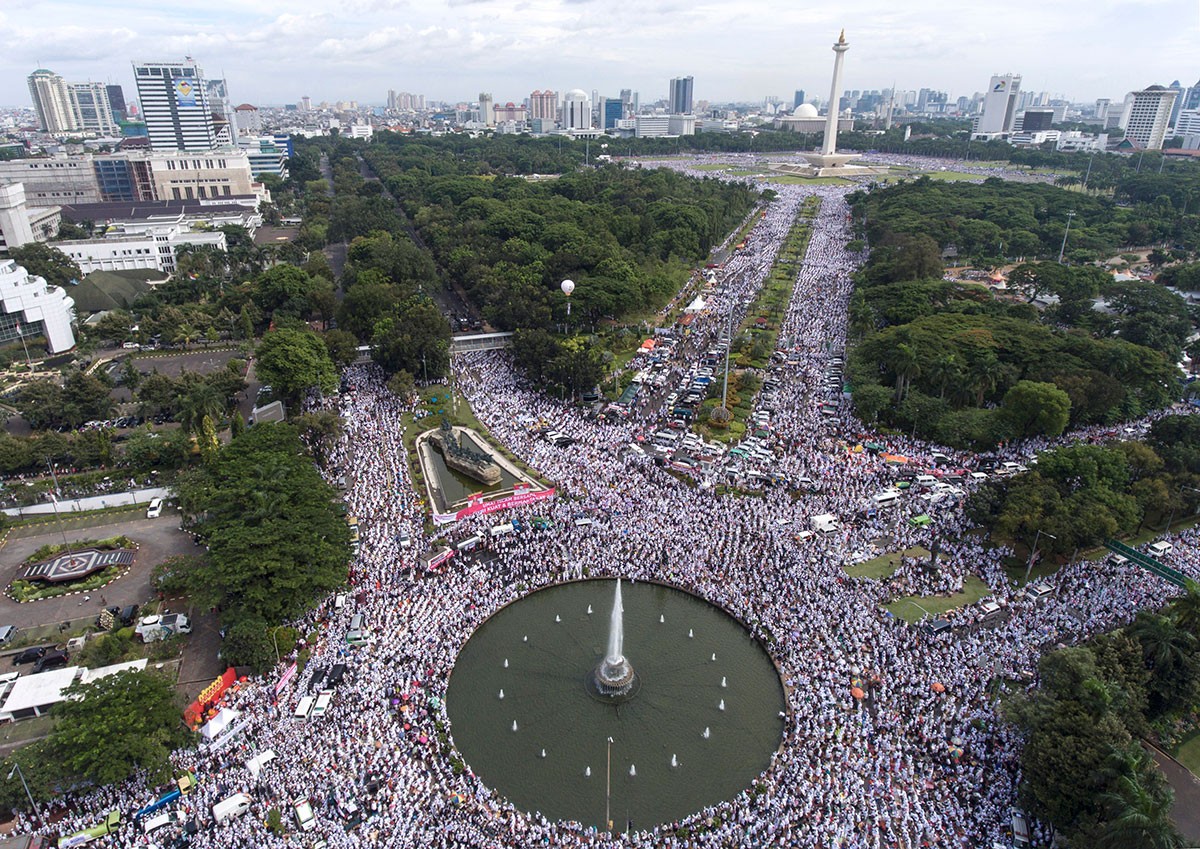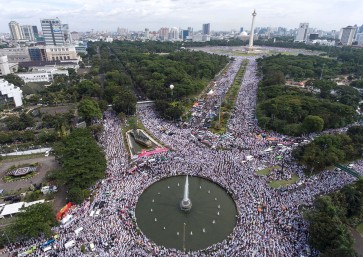Popular Reads
Top Results
Can't find what you're looking for?
View all search resultsPopular Reads
Top Results
Can't find what you're looking for?
View all search resultsMainstreaming radicalism — lessons of the West
This narrative places religious values above democracy and justifies attempts to interfere in judicial and political processes in the name of religion.
Change text size
Gift Premium Articles
to Anyone
R
eligion is one of the five pillars of Pancasila, the philosophical foundation of the Indonesian state. Indonesia is praised as the perfect example that democracy and religious faith are indeed compatible. Under the leadership of the country’s two largest religious organizations, Muhammadiyah and Nahdlatul Ulama (NU), political Islam has historically rhymed with tolerance and integrity. The late president Abdurrahman “Gus Dur” Wahid is until today acclaimed for his efforts to uphold the rights of minority groups.
But hardliners have been monopolizing headlines. The eruption of religious fundamentalism into politics reached a high point ahead of the capital’s gubernatorial election — with the campaign against incumbent Governor Basuki “Ahok” Tjahaja Purnama demanding his imprisonment for alleged blasphemy, resulting in a criminal investigation.
This anti-Ahok movement is often presented as a gathering of radical islamists and “for-hire” demonstrators. This would be a misconceived simplification of the movement, and a dangerous underestimation of the emergence of ultra-conservative populism in Indonesia.
This movement, initiated by hardliners, actually managed to gain support from a more moderate segment of the population, notably through social media. Indeed, while moderate and educated middle class groups played a limited role in early street protests, radical sounding ideas and anti-government rhetoric have found a surprisingly wide resonance in social media.
The anti-Ahok campaign was initiated by a few ultra-conservative religious organizations and was endorsed by neither Muhammadiyah nor the NU.
Despite such a lack of intellectual endorsement, a viral social media campaign based on edited and misleading footage of Ahok’s statement spread indignation throughout the web.
Despite later clarification on the actual transcript of Ahok’s speech and its context, a clear fracture in public opinion had emerged; there was no turning back.


















